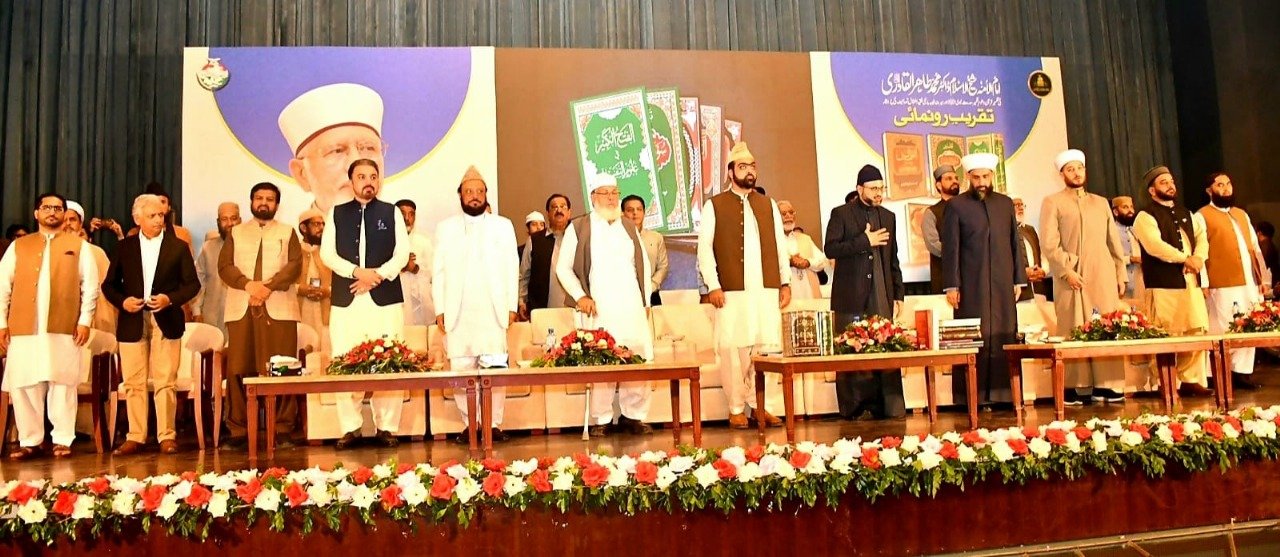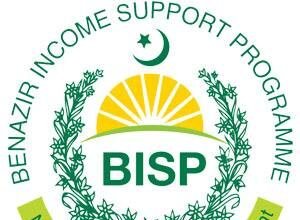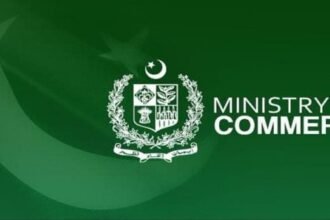by T.M Awan
Islamabad — Religious scholars and spiritual leaders have emphasized the urgent need to fight extremism, terrorism, sectarian violence, and intolerance in Pakistan. They stressed that the message of Rahmat-ul-lil-Alameen (Mercy to the Worlds) must guide national efforts. Furthermore, they said Dr Tahir-ul-Qadri scholarly work exposes terrorism and the ideology of Khawarij. Therefore, it serves as a beacon for future generations.
The book launch ceremony, organized by Nizam-ul-Madaris Pakistan at the Pak-China Friendship Centre, Islamabad, unveiled five new volumes. These books, authored by Dr Qadri, focus on Quranic exegesis, principles of tafsir, Hadith, and Seerah studies.
Khurshid Nadeem, Chairman of the Rehmat-ul-lil-Alameen Authority, highlighted the role of women in religious scholarship. He explained that Dr Qadri set a practical example by empowering women to study religion alongside men. Moreover, he praised Dr Qadri’s knowledge, wisdom, eloquence, and leadership. These qualities make his contributions enduring.
Dr Hassan Mohiuddin Qadri said his father addressed every vital subject of the age. Consequently, at a time of intellectual chaos and discord, these works promote unity and harmony within the Muslim Ummah.
Canadian scholar Sheikh Ahmad Badran remarked that Pakistanis are deeply devoted to the Prophet (PBUH), hospitable, and knowledge-loving. He added that Dr Tahir-ul-Qadri scholarly work provides practical solutions for modern challenges facing Islam.
Additionally, Minhaj-ul-Quran Secretary General Khurram Nawaz Gandapur stated that the Pak-China Friendship Hall has become a symbol of interfaith harmony, sectarian reconciliation, and knowledge-based dialogue.
Justice Dr Syed Muhammad Anwar of the Federal Shariat Court observed that Dr Qadri’s writings prove that “the fountains of knowledge have not dried up.” He described each publication as a model of rigorous research.
Former Vice President of the International Islamic University, Dr Sajid-ur-Rehman, emphasized that Dr Qadri’s works influence both Eastern and Western academic circles. He noted that they reflect early Islamic scholarship. Thus, they justify his title “Shaykh-ul-Islam.”
Maj Gen (R) Syed Azhar Abbas, representing the DG Religious Education, said Dr Qadri raised his voice against terrorism and extremism when it was most critical.
In conclusion, the recognition of Dr Tahir-ul-Qadri scholarly work reaffirmed its role as a guiding light. It continues to shape modern Islamic thought and inspire future generations worldwide.










